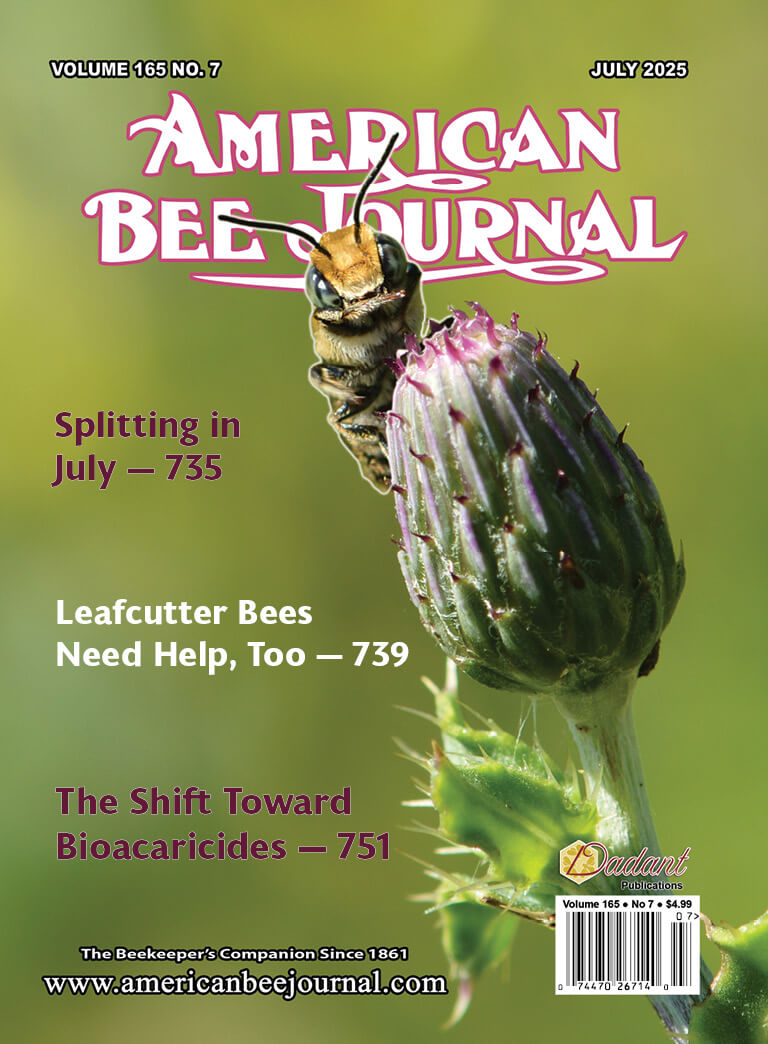Response to “Beekeeping Stakeholder” Article
In an article published in this magazine’s December 2016 edition (“Beekeeping Stakeholder”), author Luke Goembel makes several inaccurate and potentially damaging statements regarding the Maryland Department of Agriculture and its Managed Pollinator Protection Plan (MP3). In the interest of promoting pollinator health—and collaboration amongst stakeholders—we felt it necessary to clear-up some of the misinformation in his article.
The stakeholder summit referred to in the article was the basis of Maryland’s MP3 plan—available here: http://mda.maryland.gov/plants-pests/Documents/MP3-Pollinator-Plan.pdf. The department partnered with the University of Maryland and Keystone Policy Center to facilitate a discussion between more than 70 beekeepers, state agencies, growers, pesticide applicators, landowners, and land managers to discuss and indentify opportunities to promote managed pollinator health in Maryland.
Consensus from the meeting was the understanding that this is a fluid document that can be ever-changing depending on the needs of our pollinators. There was also an expressed interest for the first stages of this document to be a set of educational materials. Educating stakeholder groups about the issues surrounding pollinators and helping them understand what they can do to help is a large step in the right direction.
The document was released in June, and was open to public comment. We considered all public comments when drafting the final version of the plan, and any statement to the contrary is simply untrue.
What is largely missing from Mr. Goembel’s article is any semblance of constructive input. Instead, he spends most the article undermining the stakeholder process and lodging baseless accusations of collusion and ill-intent among the other participants.
He describes one of the presenters at the summit as an “associate of Monsanto (who is also an assistant to a professor at U. of Md.).” The man he is referring to here is Dr. Dennis vanEnglesdorp, a widely respected expert on colony collapse disorder (https://www.ted.com/speakers/dennis_vanengelsdorp), and a professor at the University of Maryland. Dr. vanEnglesdorp has also served as the State Apiarist for Pennsylvania’s Department of Agriculture, and helped establish the Bee Informed Partnership (https://beeinformed.org/team/dennis-vanengelsdorp/). The author conveniently omits these credentials as they do not jibe with his narrative.
The second half of the article mentions the Maryland Pollinator Protection of 2016 (http://mgaleg.maryland.gov/webmga/frmMain.aspx?id=sb0198&stab=01&pid=billpage&tab=subject3&ys=2016RS), and suggests that the department’s opposition to the bill is another sign that it values pesticides over pollinators. Again, this is simply not true.
To date, the department has not documented any cases of neonicotinoid pesticides negatively impacting honey bees in Maryland. According to the USDA APHIS 2012-2014 National Honey bee Survey data for Maryland, no neonicotinoids were found in Maryland pollen samples, and overall, fewer pesticides were detected when compared to the national average. Preliminary results from pollen sampled in Maryland in 2015 showed 5 of 56 (9%) samples had detectable levels of neonicotinoids.
The state of Maryland is strongly committed to improving pollinator health and the state’s beekeeping industry. By law, all honey bee colonies in Maryland must be registered with the department. Our Apiary Inspection Program annually inspects registered colonies and offers guidance on any beekeeping issues. In cooperation with our Pesticide Regulation Program they also provide real time investigation services to beekeepers who experience unexplained colony loss. The state also employs the nation’s first and only canine apiary inspector, which has drastically improved our efficiency in detecting American foulbrood.
The sensational rhetoric in Mr. Goembel’s article is irresponsible, dangerous, and undermines the efforts being made to work with our beekeepers—and all stakeholders—to improve pollinator health. The Maryland Department of Agriculture has been transparent and open throughout the MP3 process. The good work we have done on behalf of our beekeepers is all the proof we need to debunk these baseless accusations.
Cybil Preston
Maryland State Apiarist
Putting a face on Maryland’s unsustainable losses
2016 will be known to Maryland beekeepers as another year of extremely heavy losses. 2016 has been extremely challenging for our managed honeybee colonies here in Maryland. According to BIP (Bee Informed Partnership) 2016 is the year that losses exceeded 56%, and over a 3 year average, Maryland beekeepers have lost …


